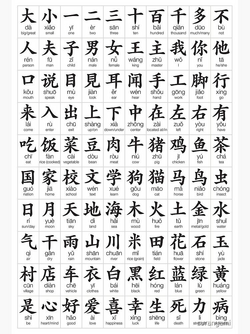- Joined
- Apr 20, 2021
Note: This thread is for Mandarin Chinese. There are other forms of Chinese but to avoid confusing the others (Wu, Cantonese, etc). I recommend making a separate thread for it.
Chinese has a reputation for being the hardest language in the world. But becomes a necessity for maintaining your Social Credit Score. So if your Social Credit Score is too low and you want to boost up your social credit score. You come to the right place.
You can get started by learning these symbols.

Easy, Right?
For those who are too poor to buy books. I'll share some resources and everyone else is allowed to collaborate and share their own.
https://hanzibase.net/home - A database of all Chinese Characters
https://resources.allsetlearning.com/chinese/grammar/ - A Wiki Based around Chinese Grammar
Chinese has a reputation for being the hardest language in the world. But becomes a necessity for maintaining your Social Credit Score. So if your Social Credit Score is too low and you want to boost up your social credit score. You come to the right place.
You can get started by learning these symbols.

Easy, Right?
For those who are too poor to buy books. I'll share some resources and everyone else is allowed to collaborate and share their own.
https://hanzibase.net/home - A database of all Chinese Characters
https://resources.allsetlearning.com/chinese/grammar/ - A Wiki Based around Chinese Grammar
